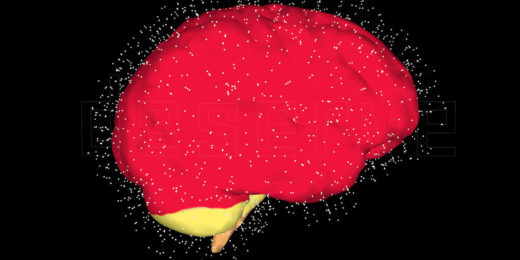Researchers found a strong correlation between the density of legal gun sellers — particularly pawnshops — in a state and firearm-related suicide rates.
Category: Psychiatry & Mental Health
Bill for later school start times is defeated, but Stanford sleep specialist isn’t
Despite strong medical evidence, a California bill to delay school start times is defeated. But Stanford sleep specialist Rafael Pelayo isn’t giving up.
Opioid system plays key role in ketamine’s antidepressant effects, Stanford study finds
Ketamine, a promising new treatment for depression, works through the brain's opioid system, Stanford study finds, defying long held beliefs.
Stanford psychiatrist focuses on mental health needs of Muslims
Rania Awaad uses her training in psychiatry and Islamic law to address the health needs of Muslims at Stanford and throughout the Bay Area.
To help patients quash pain, researcher develops practical guide for health care providers
In a new book, Stanford pain psychologist Beth Darnall offers practical tools for health care providers to help their patients reduce pain.
Schizophrenia, bipolar disorder risk linked to hidden DNA sequences
Humans' big brains may increase the risk of psychiatric disorders. Stanford researchers identify previously hidden DNA region that could be to blame.
Improving mental health in schools is key to successful learning
Shashank Joshi discusses the impact of a proactive attitude towards mental health awareness and mental illness treatment, and why mental health in schools is key for student engagement and learning in this podcast.
Google Glass helps kids with autism understand faces, Stanford study finds
A pilot trial shows that equipping Google Glass with a face-recognition app can improve social skills in kids with autism.
Life on the border: Not simply help but empower
Stanford's Laila Soudi is documenting her experience among Syrian refugees in the Middle East, where she and her team seek to not only listen, but empower refugees at the border.
Clearing up misconceptions about phobias
Phobias are a form of anxiety disorder, but can be alleviated by therapy, Stanford's Carolyn Rodriguez and other experts say in this article.
“Mood mirror” in blood: Might its absence bring on the blues?
Low levels of a substance, acetyl-L-carnitine, in the blood are associated with depression. Could this "mood mirror" be a cure for the blues?
Global warming could lead to additional suicides, new research indicates
New Stanford research suggests that global warming is likely to lead to an increase in suicide rates in the United States and Mexico.
Differences in brain’s reward circuit may explain social deficits in autism
Children with autism have structural and functional abnormalities in the brain circuit that normally makes social interaction feel rewarding.
A winning essayist’s tips for keeping track of scientific facts
Could social media — where misinformation is too often spread — be a place to help build trust in science and the research enterprise?
The travel ban harms already vulnerable Syrian refugees
The Supreme Court upheld the travel ban, making it a challenge for refugees and others who had hoped to travel, or live, in the U.S.
New suicide prevention clinical trial shows what works for teens
A new multi-center trial shows that dialectical behavior therapy can help reduce suicide attempts and self-harm in adolescents.
















